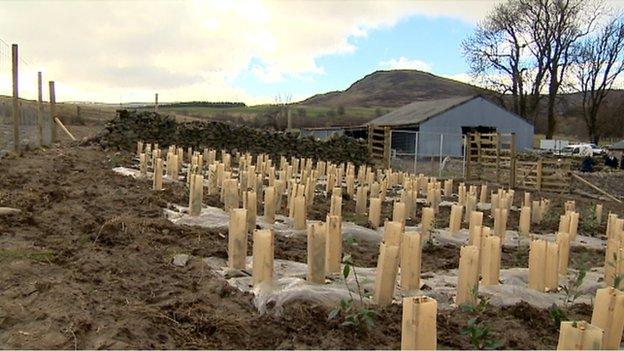A dream of growing tea in Orkney becomes reality
- Published
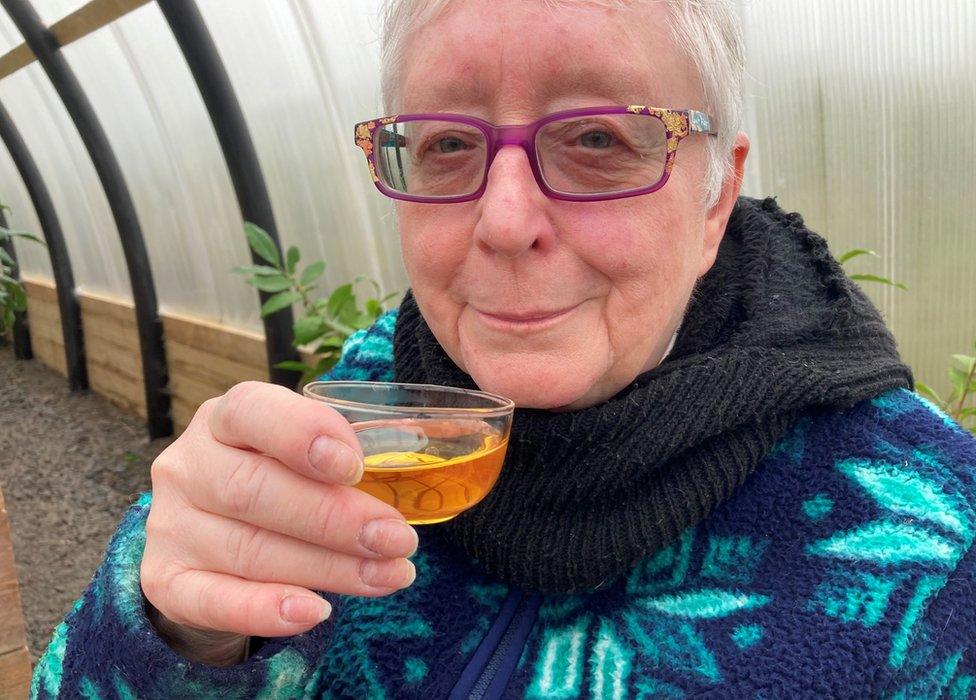
Lynne Collinson describes the tea as light and refreshing
The first production of tea from a small crop in Orkney has been described as a "dream come true".
Lynne Collinson has been growing the leaves in what she believes must be the UK's most northerly tea plantation.
She said she was delighted with the taste of the first batch, which has now been processed.
Mrs Collinson said her plantation would not be a major commercial enterprise any time soon, but hopes it will inspire people to try new things.
People in the UK consume tens of millions of cups of tea every day, but talk of tea plantations usually conjures up images of hillsides in countries like India.
But now the colder and windier climate of the Northern Isles has joined the ranks of tea producing areas - on a tiny scale.
Speaking to BBC Radio Orkney, Mrs Collinson, of Shapinsay, described her plantation as "a miracle".
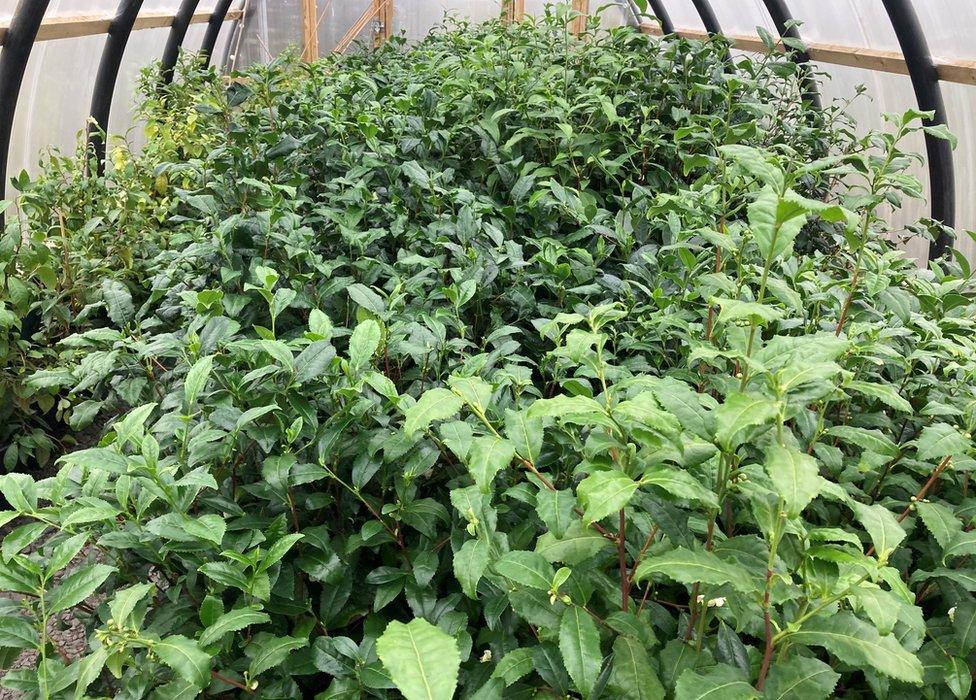
The small crop has been grown in Orkney
"It's tea growing out of doors in Orkney, probably the furthest north that tea has ever grown outside," she said.
"They are thriving, despite the wind, the rain, and the fact that tea plants just do not normally like this kind of condition."
She has been working with local plant scientist Peter Martin.
The crop is split between two outdoor fenced-in plantations under nets.
A further 35 plants are grown separately, under cover, in a polytunnel.
"The amount I've produced this year is 1.5kg (3.3lbs) of processed finished tea," she said.
"And that took 7kg (15.4lbs) of picked leaf."
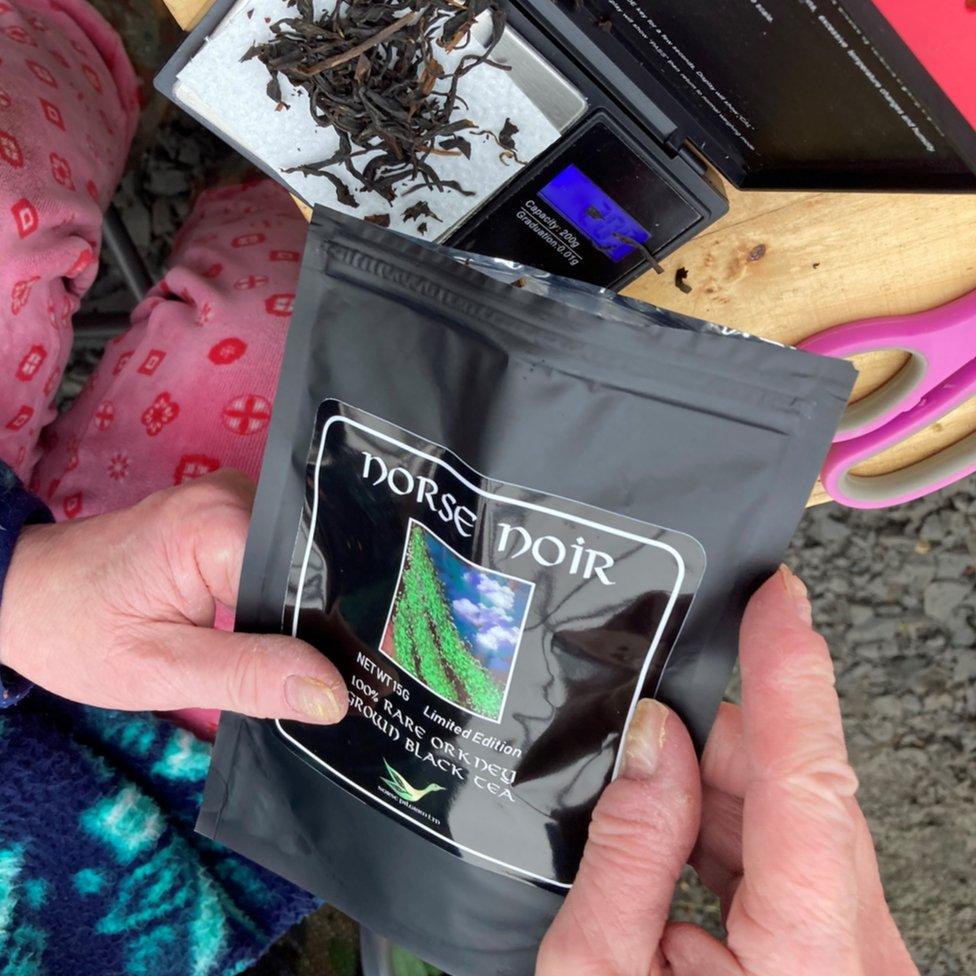
The first batch has now been produced
The first batch of Norse Noir was processed in Crieff, Perthshire.
"I have only got 65 packs of 15g portions of tea in packs so I haven't got loads to play with," Mrs Collinson explained.
"It looks delicious because it's so rich and black.
"It's a dream come true, because it's all the hard work, and all the worrying about how the plants are doing. It's all over, there's actually now a product."
Opening a packet, she uses 2.3g of leaf to brew in 200ml of water heated to a precise 95 degrees, which is timed for three minutes.
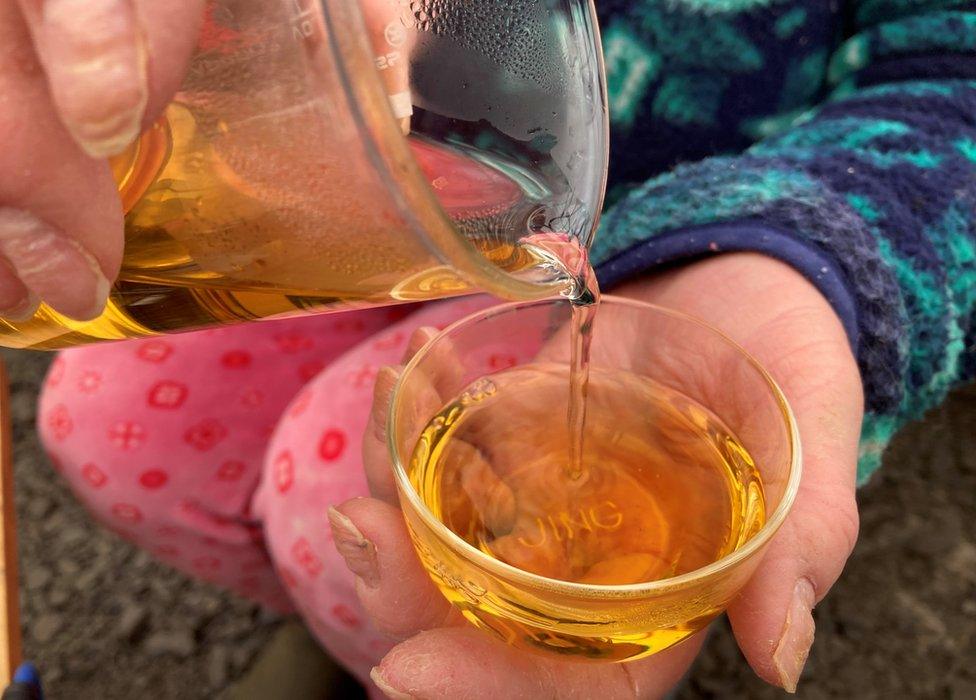
The tea has a golden yellow colour
She described the resulting golden yellow brew as a "beautiful colour", and the taste as "very light and refreshing".
Asked if milk or sugar would be added, she recommended: "No, it's just a beautiful thing in its own right, it's lovely, and you wouldn't want to spoil it.
"This is what Orkney tea, that shouldn't be possible to grow, tastes like."
Asked if it was ever going to be acres and acres, the tea entrepreneur said: "Maybe not, well not next year, no, but it's always going to be special.
"It's really to inspire people, to encourage them to do their own projects and to try things that don't make sense and also to do things that you aren't already good at, because that's the way you grow."
Related topics
- Published10 April 2014
